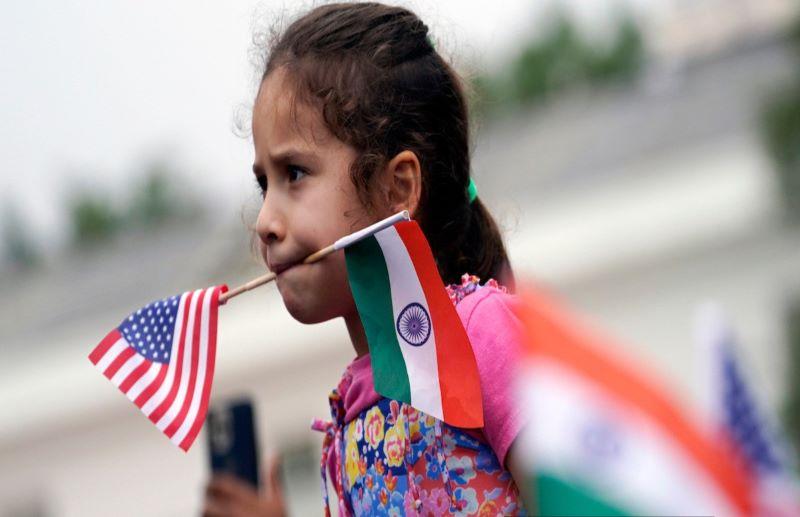
- galaxy
- 08 Nov 2024 11:47 AM
- Trump immigration reform, naturalized citizenship USA
Donald Trump and his running mate JD Vance’s campaign promises to overhaul U.S. immigration policy on their first day in office have raised serious concerns, especially among Indian-American communities. Trump has vowed to curb the process of naturalized citizenship, and his pledge to introduce a sweeping immigration reform on "Day 1" could impact millions of children born in the United States to immigrant parents.
Under Trump’s proposed executive order, children born in the U.S. will not automatically receive citizenship unless at least one parent is a U.S. citizen or lawful permanent resident. Currently, the 14th Amendment of the U.S. Constitution guarantees automatic citizenship to anyone born on U.S. soil. The new policy would effectively end "birthright citizenship" for children whose parents are not U.S. citizens or permanent residents, a significant change in how naturalized citizenship has been granted for over a century.
This reform is particularly concerning for the Indian-American community, as many families from India are in the U.S. on employment-based green cards, which have a long backlog. The backlog in processing green cards for Indian nationals exceeded 1 million applicants in early 2023, with average waiting times for a green card stretching over 50 years. This means that many young immigrants, including children who moved to the U.S. for study or work, could find themselves aging out of eligibility for legal residency or citizenship.
Trump's proposed changes could affect children who, despite being born in the U.S., may not automatically qualify for citizenship if their parents are not permanent residents. The impact would be severe for those children who would face uncertain futures, including potential deportation or being considered illegal immigrants once they turn 21 and the possibility of staying in the country without an alternative visa.
The proposal has sparked widespread legal concerns. Many experts argue that such an executive order would violate the 14th Amendment, which grants citizenship to anyone born in the U.S. and affirms that no state can strip a person of their rights without due process. Critics argue that the executive order would undermine the constitutional rights of children born in the U.S. to non-citizen parents, which could lead to significant legal challenges.
In addition to its impact on Indian-Americans, this policy could affect millions of other immigrants who have built their lives in the U.S. Over 4.8 million Indian-Americans reside in the U.S., with 1.6 million of them being naturalized citizens, according to Pew Research. As the situation evolves, whether Trump’s executive order will stand or be overturned by the courts remains uncertain, but it is clear that the legal battle could be one of the most significant constitutional challenges in recent U.S. history.
The announcement of this executive order comes at a time when immigration remains a hot-button issue, and the prospect of curtailing birthright citizenship has already raised significant political and social debates. It remains to be seen how this policy will unfold, especially with potential court challenges on the horizon.










































